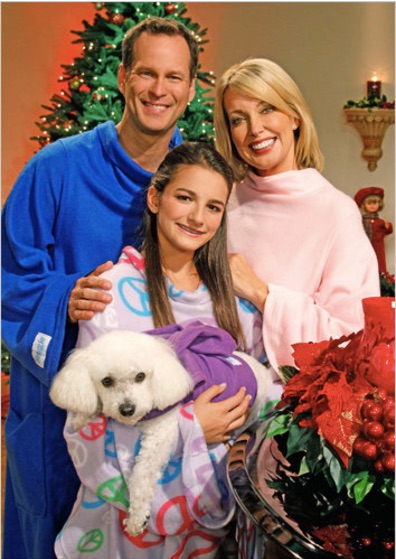Snuggies wants to be sure that you think it is a blanket. The reason takes us to U.S. trade policy.
The Snuggie:

A Blanket Rule
When Snuggies were first imported from China, U.S. customs officials called it a garment. Disagreeing, Snuggies said it was bringing blankets into the country. The name mattered because of the tariff.
When an item enters the U.S., customs officials use the Harmonized Tariff System to select a tariff. The go-to document for duty rates, the HTS has lists and lists of product groups. Because Snuggies was classified in a garment product group that included leotards and bathing suits, its rate was 14.9%.
But Snuggies’ importers believed it should have gotten the 8.5% blanket duty. On its box, the Snuggie label said, “a blanket with sleeves.” Similarly, its trademark application referred to fleece blankets and throws.
During February, a U.S. Trade Court agreed with Snuggie. Saying U.S. customs officials were wrong, the Court told us that the Snuggie was a large piece of “fabric providing a warm covering.” It was a blanket.
Our Bottom Line: Incentives
Tariffs can create perverse incentives. In 1882, we got brown sugar when white sugar imports were taxed. One hundred years later, the U.S. government tried to protect Harley Davidson through a tariff on motorcycles with 700-cc and larger engines. But then the Japanese started exporting a 699-cc version for the U.S.
You can be sure that if the Congress approves new tariffs, firms will respond with tweaked goods and services.
And then, a blanket with sleeves from China could even become a fleece sleeping bag.
My sources and more: For extra Snuggie story details, you might enjoy the articles at Quartz, the Washington Post and the NY Times. Meanwhile, at Bloomberglaw, the Court’s decision was also interesting.







Perverse incentives from taxation. Earlier examples include the English “Window Tax”, which resulted in people boarding-up windows; and the English “Glass Tax” — referred to by The Lancet as an “absurd impost on light”.